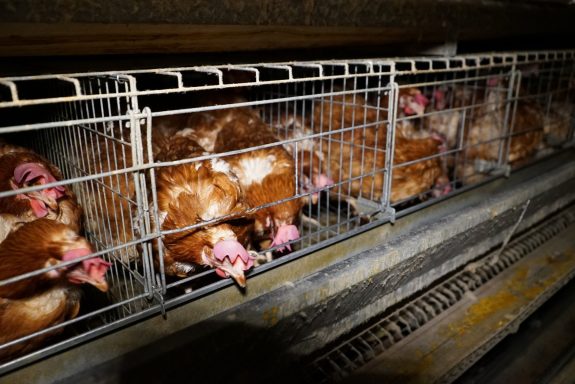Quarterly profits at Loblaw Companies Ltd. are up over 174% since the Loblaws grocery chain promised to stop selling eggs from caged hens by 2025. But improvements to the lives of hens have disappeared from the company’s forecasts.
Loblaws made its cage-free commitment in early 2016, when the company earned a quarterly profit available to common shareholders of $193 million. This week, the company announced its 2022 fourth quarter profits of a whopping $529 million. That’s a massive 174% increase when comparing Q1 2016 to Q4 2022, despite revenues only being up 35% between the same quarters.
Loblaws boasted to shareholders for years about its commitment to helping hens by going cage-free, but instead of reinvesting its massive profits into keeping promises, Loblaws has dropped the 2025 deadline and is refusing to share a timeline for the transition.
As Canada’s largest food retailer, Loblaws has the power to influence the entire industry to improve its animal welfare practices. Hens used by the egg industry face some of the most egregious forms of cruelty in the Canadian food system. Birds are packed into wire cages so small that many can’t move freely or even spread their wings. In the cramped and stressful conditions, they face fractured or broken bones, deformities, and severe feather loss. Injured hens can be trampled to death by their cagemates, and those who survive spend their miserable shortened lives trapped, often surrounded by death, filth, and feces.
Canadian grocers lag far behind their peers in the US and Europe with cage-free commitments. With Loblaws’ profits catching criticism from the public, it can ill-afford to lose further support. Fulfilling its cage-free promise isn’t just a matter of morality—it’s also a matter of good business. Join us in demanding that Loblaws keeps its promise to go cage-free by 2025.
Banner: Animal Liberation
Image representative of a typical factory farm.




